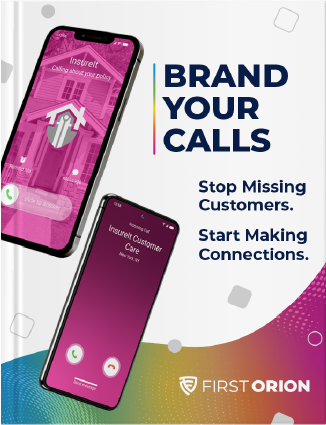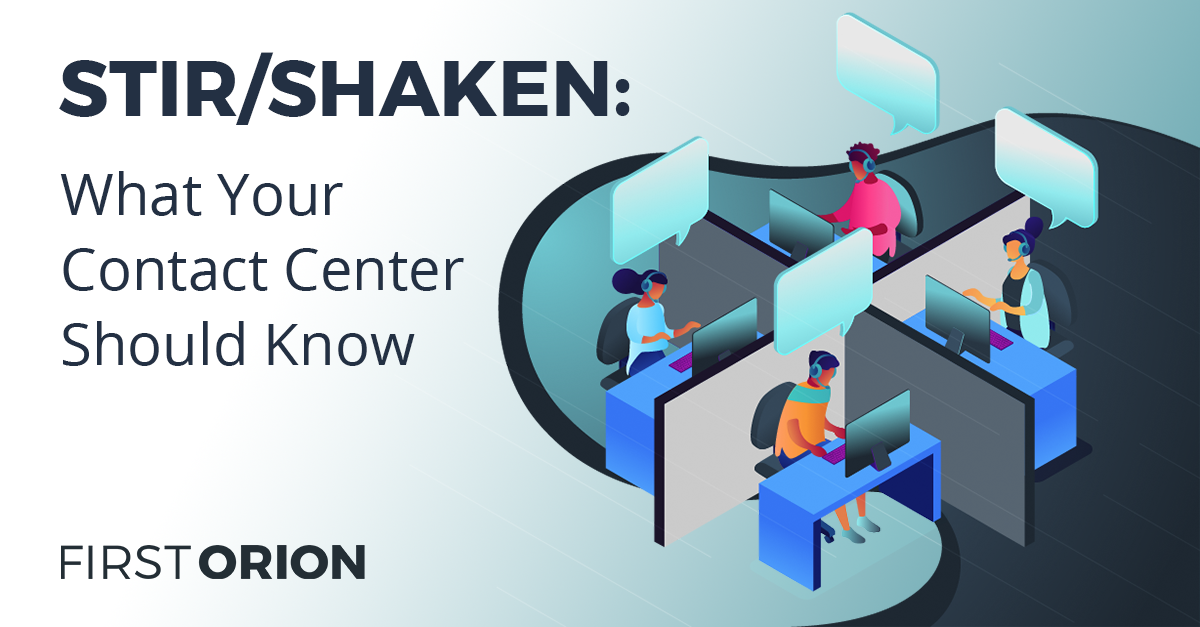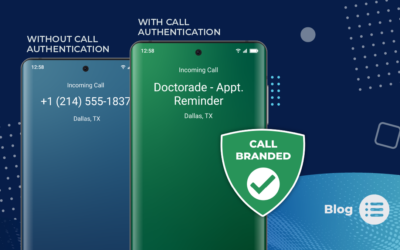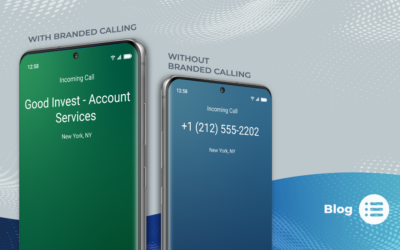The countdown is on. The FCC’s STIR/SHAKEN mandate, designed to cut down on fraudulent robocalls, goes into effect June 30, 2021. All the talk about impending regulations has many contact centers wondering how it may impact their operations. Enterprise calling scenarios are not excluded from this mandate. Learn more about what your contact center should know about STIR/SHAKEN below.
What is STIR/SHAKEN?
STIR (Secure Telephony Identity Revisited)/SHAKEN (Secure Handling of Asserted information using toKENs) is a framework introduced by the Telecom industry and enforced by the FCC (Federal Communications Commission). STIR/SHAKEN is used in conjunction with voice networks to help stop illegal spoofing by securely signing and verifying key aspects of a call using a SIP (Session Initiation Protocol) Identity header, most importantly the calling party number.
A critical part of STIR/SHAKEN is ATTESTATION.
Originating service providers use Attestation to assert and communicate their relationship about defined components of the outbound call. For each call, the service provider signals one of the possible levels of attestation.
Three Attestation Levels
- (A) FULL ATTESTATION – Responsible for call origination, relationship with customer and the phone number
- (B) PARTIAL ATTESTATION – Responsible for call origination, relationship with customer but not the phone number
- (C) GATEWAY ATTESTATION – Network entry point for the call, no relationship with the call originator or phone number
Contact centers may strive for ‘A’ level attestation, which is considered the highest level of attestation.
There are two primary reasons for pursuing the highest level of attestation:
- Avoiding legitimate outbound calls considered scam or nuisance by analytics engines, which could lead to call blocking or negative call labeling
- Displaying a positive indicator on the end user device informing the called party that the calling number is verified, which can lead to higher call answer rates
How to Prepare
Talk to your originating service providers responsible for transiting your calls and understand how they plan to handle all your different calling scenarios.
- If you send the originating service provider a SIP Identity header, what will they do with it?
- Can your originating service provider support any of the various Telephone Number Right of Use (TN ROU) methods being defined?
- How will the originating service provider handle calls that are not signed from the contact center?
These are just a few of the questions that you will want to ask, but there are more considerations.
The industry has been busy preparing an expansion of STIR/SHAKEN standards to include Enterprise Calling use cases by establishing methods for TN ROU to ensure attestation levels are set appropriately for each of your outbound calls. A few notable TN ROU methods include:
- Registered CallerTM
- Delegate Certificates
We know preparing for Enterprise STIR/SHAKEN can be a bit complex, but it is crucial if you want to make sure your contact center’s outbound calls are reaching customers and answer rates do not decline. When looking for a STIR/SHAKEN solution provider and partner, make sure they are experienced and proven.
Let Us Help
First Orion deployed the first-ever-in-the-world implementation of STIR/SHAKEN. We help carriers and call centers navigate the regulatory world of STIR/SHAKEN and ensure compliance through our industry leading solutions.
First Orion’s STIR/SHAKEN solution is deployed using our platform, allowing additional First Orion solutions to be added with minimal implementation effort. With a single query to the platform, all applicable services are processed at once, reducing latency. Combining STIR/SHAKEN from First Orion with our analytics solution can also ensure incoming calls are informative, trusted, and transparent so customers can make an informed decision on whether to answer a call.
It is important that your contact center understand how they fit into this new ecosystem to make sure your outbound calls are reaching customers.
For more information on STIR/SHAKEN and how First Orion can help, contact us. This blog is the first of a three-part series – jump to the next and learn how your contact center can prepare for STIR/SHAKEN.




